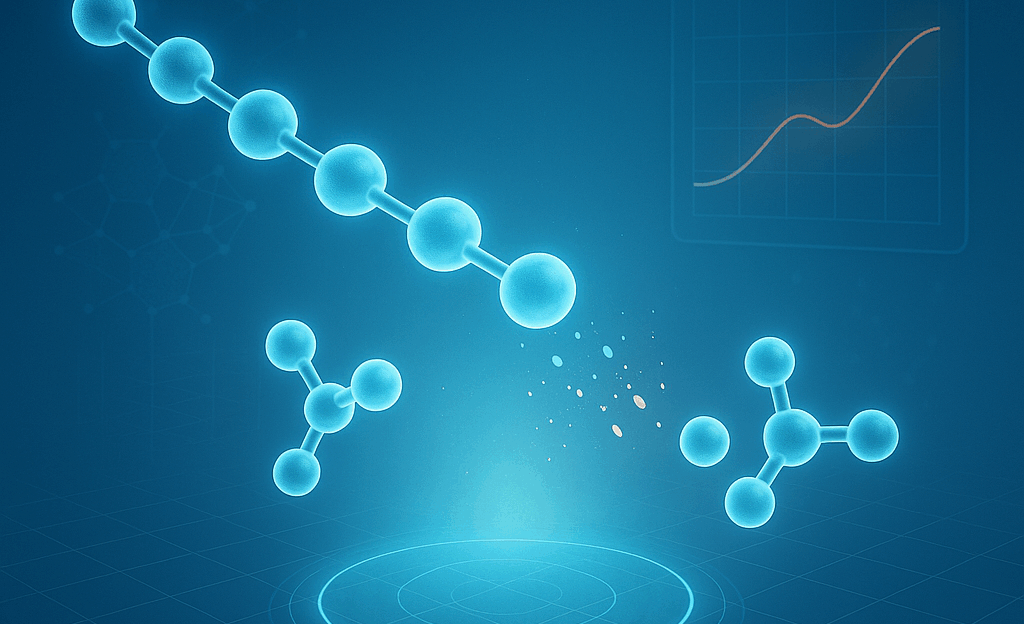Plastics are indispensable in modern life, yet most plastic packaging still ends up incinerated or landfilled, leading to carbon loss and environmental burden. While the industry has long focused on performance, far less attention has gone into making plastics truly circular. Chemical recycling could play a key role, but scalable, efficient and low-emission processes remain a challenge.
This project concluded in June 2025
MADPY set out to change that by deepening the scientific understanding of pyrolysis, the high-temperature decomposition of plastics into different chemical building blocks. The aim: to unlock predictive models that support the scale-up and environmental optimisation of chemical recycling processes.
Modelling plastic pyrolysis through kinetic simulations and AI
The project focused on developing kinetic Monte Carlo (kMC) models for the pyrolysis of common polyolefins, including polystyrene (PS), polyethylene (HDPE, LDPE, LLDPE) and polypropylene (PP). These models were refined using experimental data and AI-supported Bayesian optimisation to improve accuracy across a range of temperatures and reaction conditions.
Project results that support scale-up and sustainable design
MADPY successfully delivered:
- Detailed insights into reaction mechanisms and product yields
- Predictive models that support process scale-up and environmental design
- A framework for extending to mixed plastic waste and future multi-scale modelling
From scientific insight to circular industry impact
MADPY demonstrates that advanced modelling can make chemical recycling more viable, even for complex or contaminated plastic streams. Predictive tools like those developed in this project help design more efficient recycling systems, improve yields, and support Europe’s ambition for a low-carbon, circular economy.
Driving collaborative research for sustainable polymer innovation
MADPY is part of DPI’s Sustainable Polymer Materials programme. Like all DPI projects, it brings together partners to:
- Advance knowledge across institutions and disciplines
- Develop tools and insights in a pre-competitive setting
- Support scalable solutions with industrial relevance
By enabling focused collaboration, DPI helps turn academic research into building blocks for a more circular polymer economy.
Related publication
Advancing polyethylene pyrolysis kinetics: a tree‑based kinetic Monte Carlo approach with Bayesian optimisation (2025) – View publication on biblio.ugent.be.
Boost your R&D
By joining the DPI community, you gain access to world-leading polymer research and you help shape it. Curious how this project fits your innovation roadmap? Let’s talk.

Denka Hristova-Bogaerds
Chief programme officer
Questions or ideas?
Fill in the form and our programme manager will get back to you shortly.
